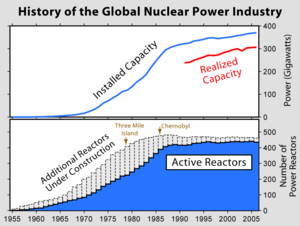I was wondering what Gaddafi was really up to when he declared a ceasefire. Taking a chance to regroup perhaps, or attempting to bargain? In fact it was something a whole lot more audacious: He would continue to kill people, while saying “Stop fighting back, this is a ceasefire”.
Meanwhile for some reason, the Independent thinks it’s clever to publish the headline “Explosion could send contamination to Ireland“, as if there was actually some reason to fear that happening.
The Radiological Protection Institute of Ireland said it was “extremely unlikely” that any material being released from the nuclear plant would have health implications here.
But Met Éireann forecaster Pat Clarke warned that if an explosion occurred, Ireland could be affected.
“If there was an explosion of up to 30,000 feet, that (material) would be carried (across the world),” he said.
Let’s leave aside the image of 30,000 exploding feet. If we can read even more into his words that has been already, he presumably means an explosion that ejects radioactive debris to a height of 30,000 feet. This would be possible if a Chernobyl-like explosion and fire does occur. Indeed, debris from Chernobyl was carried to the furthest corners of the globe.
Where it did… pretty much nothing.
While it clearly had deadly effect in Ukraine, Russia and Belarus and probably killed in Western Europe too, the fallout was gradually dispersed as it spread, eventually becoming so diluted as to be insignificant next to normal background radiation. So the probability that the explosion of a reactor as far away as Japan will actually harm anyone in Ireland? To use a round number, zero.
Which is what the story here is actually saying – if you ignore the spin. See that “but” in the second sentence of the part quoted? It suggests that this statement disagrees with the previous, that one national agency is contradicting another. That’s what turns these two rather anodyne statements into a story. Ask two different questions, “Can debris from Fukushima hurt us?” (answer: No) and “Could debris from Fukushima get here?” (answer: Yes), then put the two together so that what is actually a reassuring agreement between experts sounds like a worrying conflict. Voilà, news.




